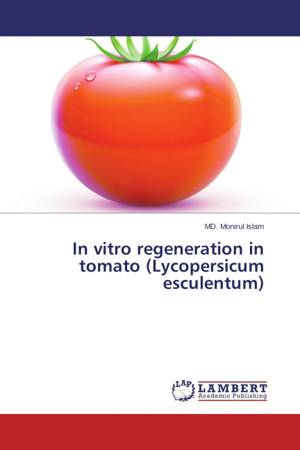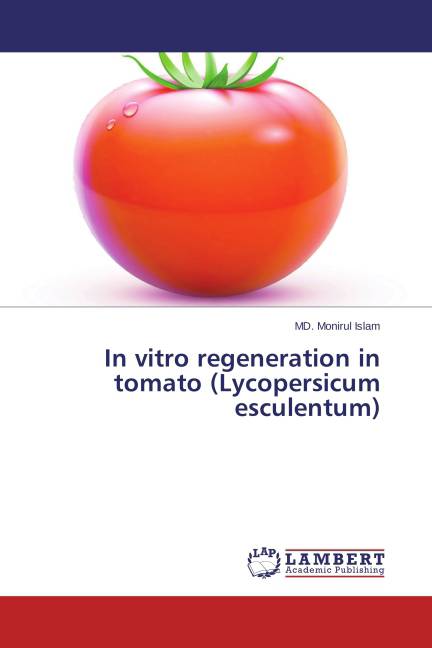
- Afhalen na 1 uur in een winkel met voorraad
- Gratis thuislevering in België vanaf € 30
- Ruim aanbod met 7 miljoen producten
- Afhalen na 1 uur in een winkel met voorraad
- Gratis thuislevering in België vanaf € 30
- Ruim aanbod met 7 miljoen producten
Zoeken
€ 43,95
+ 87 punten
Omschrijving
Abstract: The effect of different concentrations and combinations of plant growth regulators (BAP, NAA, IAA and Kinetin) was studied to develop a protocol for efficient in vitro regeneration of tomato genotypes at the Biotechnology & Genetic Engineering Laboratory of the Department of Genetics and Plant Breeding, Bangladesh Agricultural University, Mymensingh during the period from February to October, 2005. Regeneration ability of five indigenous tomato genotypes; namely V-199, V-241, V-258, V-312 and V-387 was investigated via callus induction using hypocotyl and leaf discs as explants. Explants were cultured on MS medium supplemented with different concentrations and combinations of plant growth regulators. The combination of 2.0 mg/L BAP and 0.2 mg/L NAA was found to be the best for inducing healthy and creamy calluses at 20 days after inoculation (DAI). Callus formation frequency was 63.64% in hypocotyl and 61.39% in leaf discs. Shoots were induced from callus cultured on MS medium supplemented with different concentrations and combinations of plant growth regulators.
Specificaties
Betrokkenen
- Auteur(s):
- Uitgeverij:
Inhoud
- Aantal bladzijden:
- 56
- Taal:
- Engels
Eigenschappen
- Productcode (EAN):
- 9783659599965
- Verschijningsdatum:
- 1/10/2014
- Uitvoering:
- Paperback
- Afmetingen:
- 150 mm x 220 mm
- Gewicht:
- 95 g

Alleen bij Standaard Boekhandel
+ 87 punten op je klantenkaart van Standaard Boekhandel
Beoordelingen
We publiceren alleen reviews die voldoen aan de voorwaarden voor reviews. Bekijk onze voorwaarden voor reviews.











